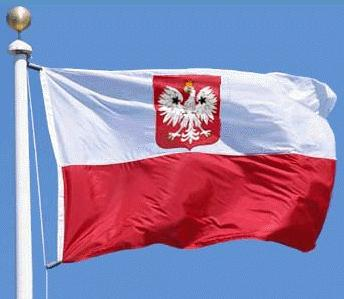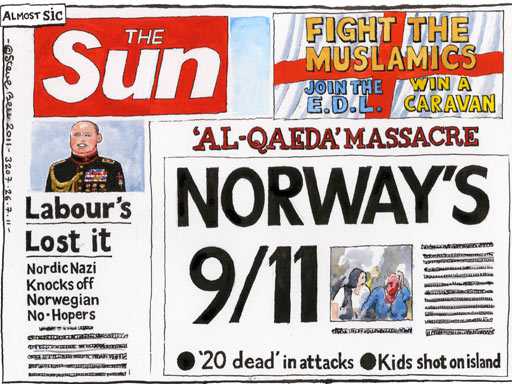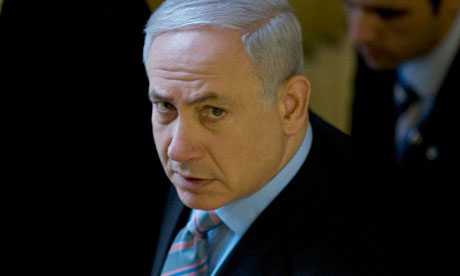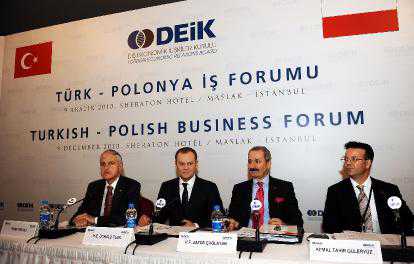 A stimulated GDP
A stimulated GDP

 A stimulated GDP
A stimulated GDP

 Friday’s horrendous attacks in Norway raise the inevitable question: Is the man who has admitted them, Anders Behring Breivik, a one-off psychopath or is he the start of something frighteningly new in Europe?
Friday’s horrendous attacks in Norway raise the inevitable question: Is the man who has admitted them, Anders Behring Breivik, a one-off psychopath or is he the start of something frighteningly new in Europe?That there are those in Europe who, like Breivik, are fanatically opposed to immigration, detest multiculturalism and have a particular hatred of Islam is known. These are the hallmarks of the far right across Europe (not to mention the US, Russia and elsewhere). But is the far right in such places now prepared to kill, as he has killed, in furtherance of these bigoted, twisted ideas?
That he acted alone in planning and carrying out his murderous rampage seems to be the case although he admits to contacts with similarly-minded fanatics in the UK and there is a possible link with the far right in Poland. But he also says are 80 sleepers in Europe, prepared to murder thousands of people in pursuit of eradicating Islam in Europe and to make it a monocultural continent — something it has never been. These claims cannot simply be dismissed as the ravings of a fanatic. They have to be thoroughly investigated.
In his 1,500-page online manifesto, uploaded just before Friday’s killings, he makes it clear that his aim is not only to “cleanse” Europe of Muslims but also to eliminate all who promoted or supported multiculturalism there and opened the door to Muslim immigrants — its politicians, journalists, lawyers and others. His potential targets included the UK’s Prince Charles, its former Prime Ministers Tony Blair and Gordon Brown, Germany’s Chancellor Angela Merkel and members of all its political parties, European Commission President José Manuel Barroso (popularly known as Durão Barroso in Portugal), former Norwegian Prime Minister Gro Harlem Brundtland and politicians in Belgium, France, the Netherlands. It was not only Europe’s political establishments he hoped to destroy. Targets also included oil refineries and nuclear power plants. His plan was to attack the very core of Western society which he sees as corrupted by liberalism and socialism. This is fanaticism on a scale of insanity not seen since the demise of the Adolf Hitler.
That he calls himself a modern-day Knight Templar, a successor to those commandoes of the medieval Crusades, proclaims him a fantasist. This is the stuff of a Dan Brown novel. But while he is not the first person to imagine himself a Templar, he is the first to cross the divide between fantasy and reality. His is a fantasy soaked in the blood of almost a hundred people, a fantasy made real by a frightening dedication to his hatreds.
Here is Europe’s Al-Qaeda. Anders Behring Breivik and Osama Bin Laden are two sides of the same coin: a fanatical belief that their cultures must be purified, that the political establishments which have overseen their degeneration must be destroyed and that anything “alien” rigorously excluded.
Just as there have been those in the Muslim world who followed Bin Laden, copied his methods or sympathized with his objectives, it is entirely possible that there will be those in the West who will regard Breivik as a hero to be emulated. The language he uses is chillingly reminiscent of Al-Qaeda. He refers to the supposed 80 sleepers across Europe as “martyrs”. Are there going to be other bomb attacks, other killings? We hope that Breivik is a one-off. But we dare not assume so.

Haaretz Editorial
Benjamin Netanyahu has responded to the political turmoil in Arab states with renewed entrenchment in his right-wing views. In his address to the Knesset last week the prime minister warned that the regional instability could last for years, patted himself on the back for opposing the 2005 withdrawal from the Gaza Strip and spoke in favor of a continued Israeli presence in the Jordan Valley as part of a future agreement with the Palestinians, to keep Iran from “walking into” the West Bank.
Netanyahu described himself as being disappointed by the refusal of Palestinian Authority President Mahmoud Abbas to negotiate. Netanyahu is ostensibly willing to talk with the Palestinians, but he offers them nothing beyond the future recognition – laden with preconditions – of a Palestinian state. He is not open to a change in the territorial status quo, and insists on going ahead with the expansion of the settlements, which undermines the chances for compromise.

In such circumstances it is understandable that the international community views Netanyahu’s talk of peace as empty words meant to buy time in order to perpetuate the right’s control of the government and to bolster the settlement enterprise. The U.S. veto prevented the harsh condemnation of the settlements by the UN Security Council, but the voting underlined Israel’s growing isolation.
Netanyahu’s position causes even friendly leaders, such as German Chancellor Angela Merkel, to turn her back to him. “You did nothing to advance peace,” Merkel told the prime minister when he called her to complain about Germany’s support for the Security Council resolution, according to a report by Barak Ravid in Friday’s Haaretz. Netanyahu promised Merkel that he will soon issue a new peace proposal, but the German chancellor was not inclined to believe him.
It is precisely during times of regional instability and uncertainty that Israel needs the support of the international community. But the Netanyahu government prefers to turn its back to the world and to barricade itself within Hebron and Beit El, Ofra and Yitzhar. Its policy is causing serious harm to Israel’s national interests and will only impede Israel’s integration into the new regional order that is taking shape. Netanyahu must heed the warnings of friendly leaders and put forth a practical peace plan – and not another attempt to use high-flown rhetoric to get the world off his back.
www.haaretz.com, 27.02.11
Israeli paper reports that PM was told in fractious phone call: ‘You haven’t made a single step’
Harriet Sherwood in Jerusalem

The German chancellor, Angela Merkel, has sternly rebuked the Israeli prime minister, Binyamin Netanyahu, in an unusually fractious telephone call, according to media reports.
Netanyahu had done nothing to advance the peace process, Merkel said in a conversation this week, reported in the Israeli daily Haaretz.
The Israeli prime minister telephoned Merkel on Monday to say he was disappointed that Germany had voted for a UN security council resolution condemning settlements that was vetoed by the US.
According to a German official quoted by Haaretz, Merkel was furious. “How dare you?” she said. “You are the one who has disappointed us. You haven’t made a single step to advance peace.”
A spokesman for the Israeli prime minister said he could not confirm the report.
The quoted comments reflect growing impatience in Europe with the impasse in the Israeli-Palestinian talks and a belief that Israel is stalling or impeding progress. With the exception of the US last Friday’s resolution was backed by all the security council members including Britain, Germany and France.
Despite the resolution being carefully worded to reflect American policy on settlement building in the West Bank and East Jerusalem, the US wielded its veto for the first time under Barack Obama’s presidency.
Reaction among Palestinians has been angry. Demonstrations have been held across the West Bank, in Ramallah, Nablus and Bethlehem.
Netanyahu told Merkel that he was planning a new initiative to be disclosed in the next few weeks. “I intend to make a new speech about the peace process in the next two to three weeks,” he was quoted as saying.
An Israeli government official confirmed that a fresh statement by Netanyahu on negotiations was in preparation but declined to say when it might be delivered.
During a visit to Israel this month the German chancellor warned that “the stalemate in negotiation is dangerous. There is no room for excuses.“
She dismissed the notion that Europe was becoming more hostile to Israel. “Europe will not turn its back on Israel and neither will the United States. We feel uncomfortable because things are not progressing. In an honest and straightforward manner I will tell you that you are missing an opportunity. History will not give you many more.“
At a joint press conference on Thursday with the Polish prime minister, Donald Tusk, Netanyahu said he expected Poland to be robust in defending Israel when it took over the presidency of the European Union on 1 July.
“We have two expectations: upgrading Israel’s standing in the EU and upgrading the truth,” he said. “Israel is fighting for its right to exist, to live in security and exist at all, against ceaseless waves of attacks.”
www.guardian.co.uk, 25 February 2011


Turkey and Poland have the potential to be the tigers of the global economy, according to Polish Prime Minister Donald Tusk, who gave a speech at the Turkey-Poland Business Forum in Istanbul on Thursday.
The Polish prime minister said: “However the EU’s attitude is, in Poland’s foreign strategy, Turkey’s entrance to the EU was a fixed item.” He added that he was not saying this just out of courtesy, but because they thought Turkey’s participation in the union would be for the best interest of all the members. He also said he hoped during Poland’s presidency term in the future the negotiations for membership would accelerate.
The business forum was organized by the Foreign Economic Relations Board, or DEİK.
Tusk said the friendship between the two countries had deep roots and sound foundations, calling it an exemplary case in terms of international affairs.
He said a great many giant economies’ prestige had been severely wounded during the economic recession, whereas Turkey and Poland both came out fo the period clean, which he found particularly noteworthy.
Tusk said Poland was set to continue its growth trend and is planning significant investment expenditures in the coming term.
“The investment opportunities in Poland will definitely attract entrepreneurs,” he said.
Tusk concluded his speech by mentioning the Turkey-EU visa issue. He promised that Poland would do all they could to remove visa obstacle and would put pressure on the EU about this. He said Poland had already agreed with the idea that the union should ease the visa regime with its neighbors and was a leading figure in working to make that happen.

By Roman Frister
WARSAW – The Israeli suspected of forging a German passport allegedly used in the January assassination of a Hamas operative landed in Israel last night. The arrival of the man, identified as Uri Brodsky, came after a German court released him on bail following his extradition from Poland to Germany on Thursday.
A court in the German city of Koln subsequently said Brodsky will be allowed to leave the country while proceedings against him continue. He will be represented by his attorneys in court.

Brodsky, who is expected to face charges of forgery, faces a maximum penalty of three years. The Polish court that authorized his extradition limited the ability of German authorities to charge him with more serious crimes, noting the only available evidence related to the illegal procurement of a German passport.
According to Polish sources, even before his extradition was approved, a secret deal had been reached by which Brodsky would be allowed to return to Israel, with guarantees that if he is sentenced to jail time he will be sent back to Germany. German legal experts believe the court will only fine Brodsky and not ask for jail time.
Brodsky, an Israeli citizen, was arrested in Poland in early June, and is charged with helping procure a German passport through forgery. The German media reported that he used the name Alexander Verin when he assisted another alleged Mossad agent, who represented himself as Michael Bodenheimer, the son of a German Jew named Hans Bodenheimer, in acquiring a German passport.
Responding to the news that Brodsky was released on bail, the United Arab Emirates says it is seeking clarification from Germany on why it released an alleged Israeli spy wanted in connection with the slaying of a Hamas operative in Dubai. Emirati Foreign Ministry official Abdul Rahim al-Awadi said yesterday that the UAE has asked Berlin for an explanation of why Brodsky was released while the case is ongoing.
Brodsky is accused of illegally helping to procure a German passport used in connection with the January 19 assassination of Hamas operative Mahmoud al-Mabhouh in Dubai, allegedly by a Mossad hit squad.
The UAE authorities maintain that more than 30 suspects were involved in the hit, and that they used passports from Britain, Ireland, France, Australia and Germany. The use of apparently fake passports from other countries led to diplomatic friction between Israel and those countries, including the expulsion of Israeli diplomats in some cases.
https://www.haaretz.com/2010-08-15/ty-article/suspected-mossad-agent-lands-in-israel-after-released-in-germany/0000017f-e3d0-d9aa-afff-fbd88e100000, 15.08.10
